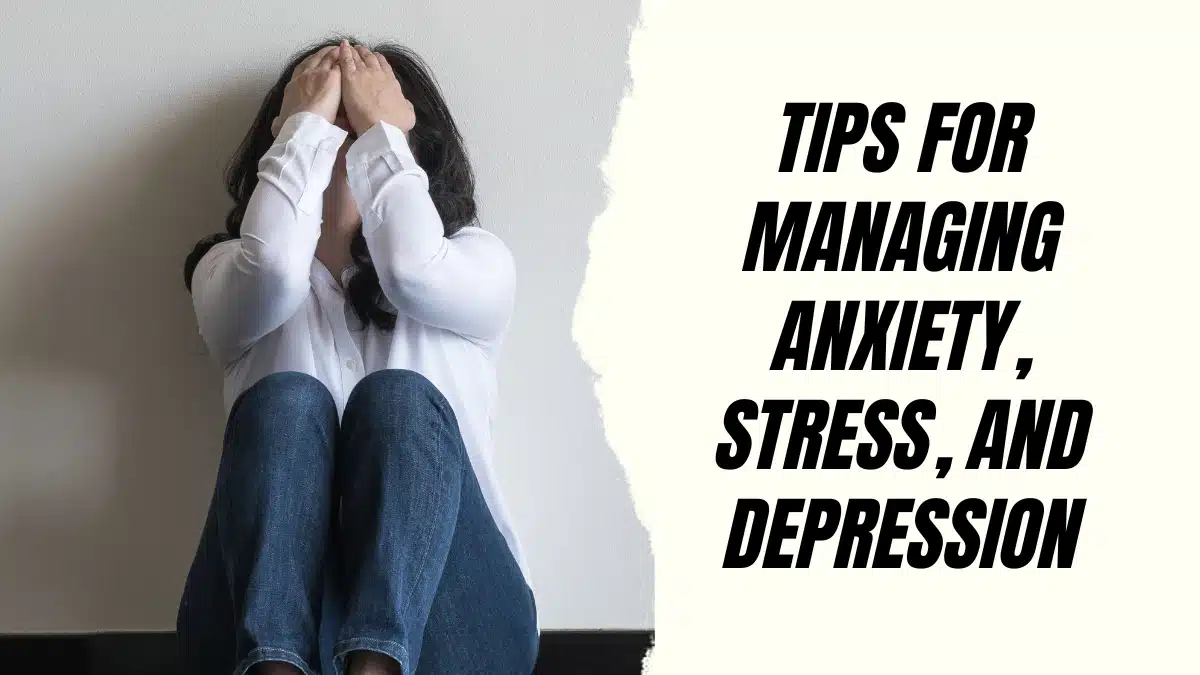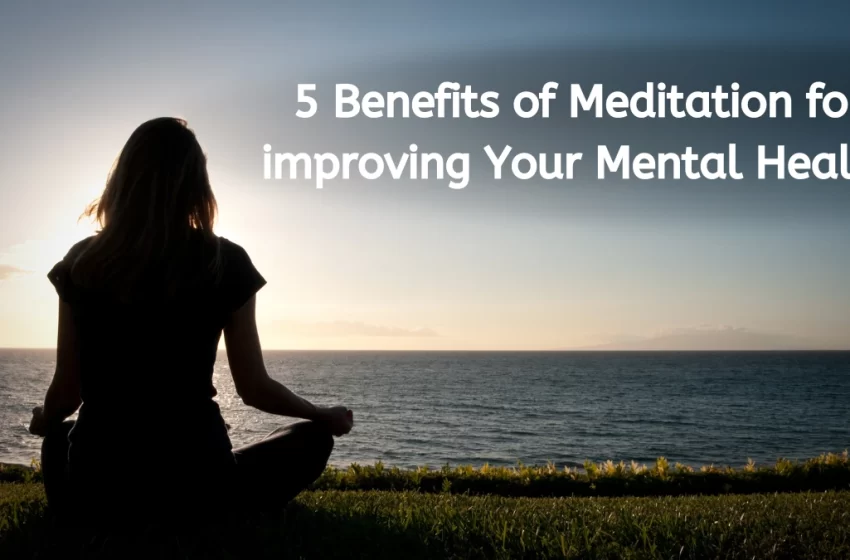
Tips for Managing Anxiety, Stress, and Depression: Anxiety, stress and depression are prevalent mental health issues affecting people worldwide. Stress, anxiety, and depression are common conditions that can affect anyone regardless of age, gender, or background. The fast-paced modern lifestyle, coupled with the ongoing pandemic, has heightened these problems, and managing them can seem overwhelming. .
There are many effective strategies tips for managing anxiety, stress and depression. However, with the right strategies, it is possible to cope with these issues and lead a healthy, fulfilling life. By incorporating these tips into your daily routine, you can improve your overall well-being and enjoy a more balanced and fulfilling life.. In this blog, we will share some tips for managing anxiety, stress and depression.
Table of Contents
Identify the triggers :-
Identifying the triggers that cause stress, anxiety, or depression is the first step in managing them. Some common triggers include work-related stress, financial difficulties, relationship issues, health problems and major life changes. By identifying and addressing these triggers individuals with depression and anxiety can take control of their mental health and develop effective strategies for managing their symptoms.
Develop a routine:-
Creating a routine helps to reduce stress, anxiety, and depression by providing structure and predictability to your day. You can start by setting a regular sleep schedule, exercising and incorporating relaxation techniques such as meditation, deep breathing, or yoga. Also, prioritize activities that bring joy and a sense of purpose, such as spending time with loved ones, hobbies, or volunteering
Practice mindfulness:-
In addition to mindfulness, this guide provides actionable tips for managing anxiety, stress, and depression such as relaxation techniques, lifestyle changes and seeking professional help. Mindfulness is a mental state in which you focus on the present moment and accept your thoughts and feelings without judgment. Practicing mindfulness can help you reduce stress and anxiety by allowing you to observe your thoughts and emotions without getting caught up in them. You can practice mindfulness through deep breathing meditation exercises or simply by focusing on your senses.
Exercise regularly:-

Exercise is an effective way to manage stress, anxiety, and depression. Regular exercise can also improve sleep quality which is important for managing stress and anxiety. Regular exercise has been shown to have a wide range of benefits including improving cardiovascular health, building muscle and bone strength, reducing the risk of chronic diseases such as diabetes and hypertension and even improving mood and reducing symptoms of stress, anxiety and depression.
Set realistic goals:-
Setting realistic goals can help you feel more in control and reduce stress and anxiety. However for individuals with depression and anxiety, setting and achieving goals can be challenging. Clearly define your goals and be specific about what you want to achieve. This helps you focus on the key objectives and avoid distractions.
Get enough sleep:-

Sleep is essential for maintaining good health, especially when it comes to managing anxiety, stress, and depression. Sleep deprivation can lead to irritability, fatigue and difficulty concentrating, which can worsen symptoms of anxiety and depression. Sleep disturbances associated with these conditions can include insomnia, nightmares, and hypersomnia (excessive daytime sleepiness). Tips for managing anxiety, stress, and depression include improving sleep quality by establishing a bedtime routine, avoiding caffeine and alcohol before bed and limiting screen time before sleep. By prioritizing good sleep hygiene, you can better manage your symptoms and improve your overall well-being.
Limit exposure to news and social media:-

Continuous exposure to negative news and social media can contribute to feelings of stress, anxiety and depression. Staying informed is crucial but it’s also essential to regulate your exposure to negative information. You can set limits on your news and social media consumption by establishing boundaries such as reducing your daily usage or refraining from accessing news or social media during certain periods of the day.
Challenge negative thoughts:-
Negative thoughts and self-talk can intensify feelings of stress, anxiety, and depression. To cope with these emotions, it can be helpful to identify the underlying beliefs and assumptions driving these negative thoughts and challenge them. By questioning whether these beliefs and assumptions are grounded in reality or merely your own interpretations you can replace them with more realistic and positive thoughts. This is a useful technique for managing anxiety, stress and depression.
Practice self-care:-
It includes activities such as eating healthy, getting enough sleep, staying hydrated and avoiding drugs and alcohol. You can also engage in activities that make you feel good, such as taking a bath, reading a book or watching a movie. Remember to take breaks when needed and practice self-compassion being kind to yourself and accepting your flaws.
Stay connected – Tips for Managing Anxiety

One of the easiest ways to stay connected is to reach out to friends and family members. Even if you don’t feel like talking about your mental health issues just having someone to talk to and spend time with can help you feel less alone. Make an effort to schedule regular phone calls, video chats or meetups with the people in your life who support and care for you
Conclusion – Tips for Managing Anxiety ,Stress, and Depression
In conclusion, Tips for managing anxiety, stress and depression requires a holistic approach that addresses both physical and mental health. By practicing mindfulness, exercise, getting enough sleep, connecting with others, engaging in relaxation techniques, practicing self-care and seeking professional help. you can effectively manage these conditions and improve your overall well being. I hope you enjoy this blog to learn about tips for Managing Anxiety, Stress, and Depression















